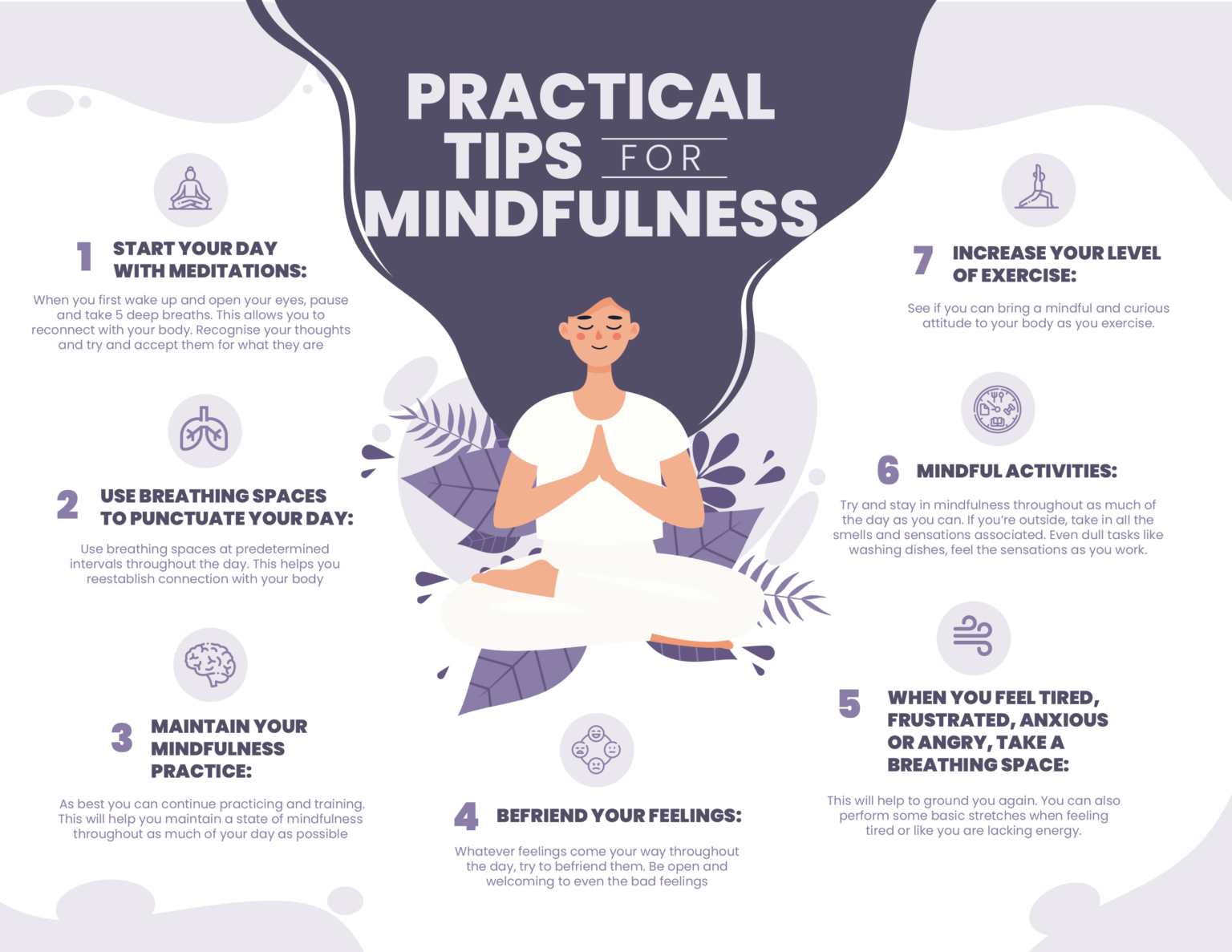In today’s fast-paced world, stress has become a common part of life. It’s easy to feel overwhelmed by daily responsibilities, work pressures, and personal challenges. However, incorporating simple habits into your routine can significantly enhance your mental well-being and help you manage stress more effectively. Here are ten daily habits that can make a positive impact on your mental health.
1. Practice Mindfulness Meditation
Mindfulness meditation involves focusing on the present moment without judgment. Spending just 10 minutes a day practicing mindfulness can reduce anxiety and increase your emotional resilience. Try guided meditation apps or simply sit in silence, focusing on your breath. This practice can help clear your mind and create a sense of calm.
2. Establish a Morning Routine
Starting your day with a structured morning routine can set a positive tone for the rest of the day. Incorporate activities like stretching, journaling, or enjoying a nutritious breakfast. A consistent routine can enhance productivity and create a sense of control, reducing feelings of stress.
3. Stay Physically Active
Regular exercise is a powerful stress reliever. Aim for at least 30 minutes of moderate activity each day, whether it’s walking, jogging, dancing, or yoga. Exercise releases endorphins, which are natural mood lifters, helping to reduce stress and anxiety levels.
4. Connect with Nature
Spending time outdoors can have a calming effect on the mind. Nature walks or simply sitting in a park can lower stress hormones and boost your mood. Make it a habit to spend time outside each day, even if it’s just for a short break.
5. Limit Screen Time
Constant exposure to screens can contribute to feelings of anxiety and stress. Set boundaries for your daily screen time, especially on social media. Instead, engage in activities that promote relaxation, like reading a book or practicing a hobby.
6. Practice Deep Breathing Exercises
Deep breathing is a simple yet effective way to reduce stress. Take a few moments each day to practice deep breathing exercises. Inhale slowly through your nose for a count of four, hold for four, and exhale through your mouth for four. This practice helps activate your body’s relaxation response.
7. Stay Hydrated and Eat Well
What you consume plays a significant role in your mental health. Stay hydrated by drinking plenty of water throughout the day. Incorporate a balanced diet rich in fruits, vegetables, whole grains, and lean proteins. Foods like nuts, fish, and dark chocolate can also help improve mood and reduce stress.
8. Cultivate Gratitude
Taking a few moments each day to reflect on what you’re grateful for can shift your mindset. Keep a gratitude journal and write down three things you appreciate each day. Focusing on the positive can help counteract stress and improve overall mental well-being.
9. Set Realistic Goals
Setting achievable goals can provide direction and motivation. Break larger tasks into smaller, manageable steps, and celebrate your progress. This habit can reduce feelings of overwhelm and boost your confidence as you accomplish your objectives.
10. Prioritize Sleep
Sleep is essential for mental health. Aim for 7-9 hours of quality sleep each night. Establish a calming bedtime routine, avoid screens before bed, and create a comfortable sleep environment. Adequate rest can significantly reduce stress levels and improve mood.
Conclusion
Incorporating these ten daily habits into your routine can significantly reduce stress and enhance your mental well-being. Remember, change takes time, so be patient with yourself as you develop these habits. By prioritizing your mental health, you’re not only improving your own quality of life but also setting a positive example for those around you. Take a deep breath, and start today—your mind and body will thank you!

Comments
Post a Comment